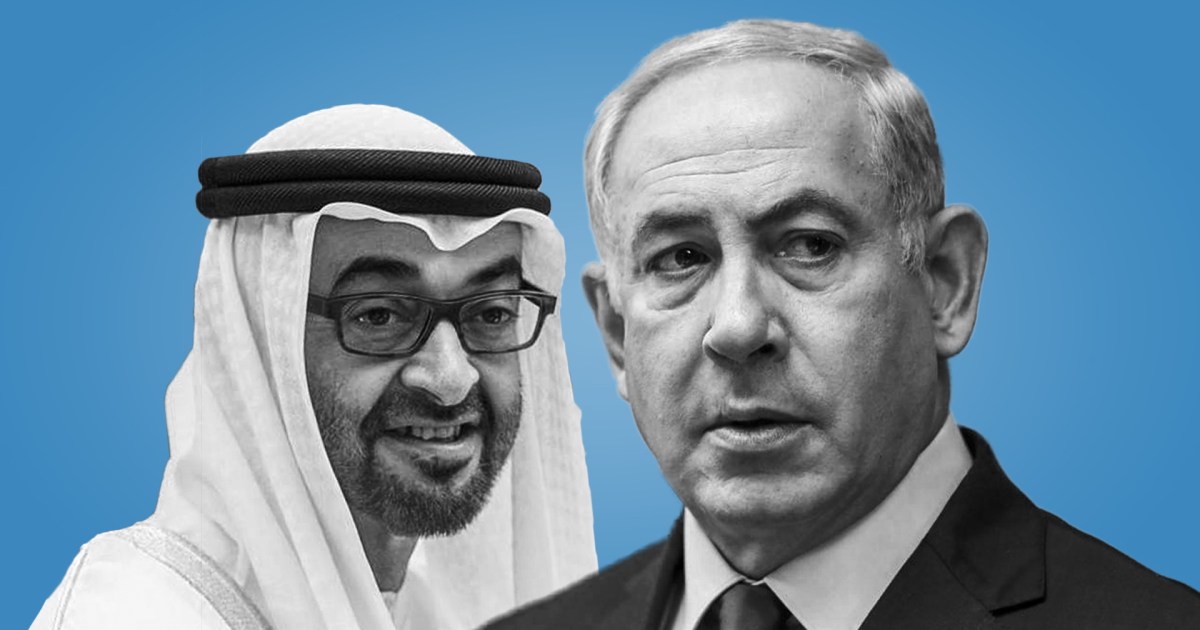The Israeli Prime Minister's Office said that the peace agreement with the UAE does not include selling advanced American weapons, while Iran said that Tel Aviv had deceived some countries in the region by deluding it with the ability to protect it.
In a statement, Netanyahu's office added that the prime minister opposed the sale of US F-35s, or any other advanced weapon, to countries in the Middle East, including the UAE.
He stressed that Israel's position did not change in this regard even after the UAE signed the normalization agreement, and the Netanyahu office statement indicated that the United States had made it clear that it would preserve the qualitative edge of Israel.
Meanwhile, Israeli Defense Minister Benny Gantz assured that Israel will maintain its military and security superiority.
Gantz said in a press conference that he would make a phone call with the defense minister of Abu Dhabi, to emphasize Israel's vital interests in any peace agreement with it.
In a related context, Reuters reported that the Emirati National Security Adviser Sheikh Tahnoun bin Zayed met with the head of the Israeli Mossad, Yossi Cohen, during his visit to the UAE.
Sources said that Cohen arrived in Abu Dhabi yesterday afternoon on a flight coming from Ben Gurion Airport directly, and that the aim of his visit is to hold talks to finalize the agreement to normalize relations between the UAE and Israel.
Cohen told Bloomberg that it is likely that Bahrain and Sudan will be the first two countries to follow the example of the UAE in normalization, and that Gulf states such as Oman and Saudi Arabia will join them in addition to Morocco.
Iranian criticism
On the other hand, Iranian Foreign Minister Mohammad Javad Zarif said, "Israel and the United States seek to portray Iran as a security threat in the region."
In a televised statement, Zarif described Israel as the biggest threat in the region.
The Iranian Foreign Minister added that Israel had deceived some countries in the region with this trick, and that some countries in the region had betrayed the Palestinian cause in the hope that they would benefit from Israel's security cover.
"These countries, with all folly, do not realize that Israel is unable to guarantee its security in exchange for Hezbollah and Hamas, so how does it want to guarantee the security of others ?!" he added.
Popular condemnations
In turn, the Muslim Brotherhood in Egypt condemned the UAE’s decision to establish an integrated relationship with Israel.
In a statement, the group described these relations as a betrayal of the Palestinian cause, Al-Quds and Al-Aqsa Mosque, and it is considered an explicit neglect of the rights of the Palestinian people, which were approved by international legitimacy, according to the statement.
It stressed its principled position rejecting the normalization of any Arab or Islamic country with Israel, in any form.
For their part, the Palestinian political and societal forces - during a national meeting held in Gaza City - renewed their rejection of the Emirati-Israeli agreement.
The Palestinian forces warned against the acceleration of the pace of Arab normalization with Israel at the expense of Palestinian national rights and constants, and called on the Arab peoples to stand by the Palestinian cause and reject the Emirati-Israeli agreement.
Saudi pressure
In the context, Ehud Yaari, editor of Arab affairs for the Israeli Channel 12, said that Saudi Arabia has sent a strong message to the Palestinian Authority in the wake of the protests in the blessed Al-Aqsa Mosque against the peace agreement between Israel and the UAE after last Friday prayers.
The protests included the burning of photos of the Crown Prince of Abu Dhabi, Mohammed bin Zayed.
According to the Israeli journalist, Saudi Arabia fears that these demonstrations will deter Muslims from the Gulf countries from coming to Al-Aqsa to pray there.
Yaari said the Saudi letter had warned the Palestinian Authority of the consequences of exaggerated protests that could cause it harm.

